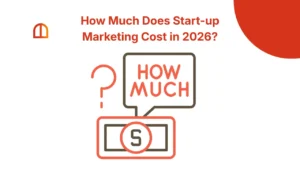Today, 49% of businesses claim that organic search yields the best marketing ROI, making SEO a powerful combination for SMEs that can transform their business trajectory. With approximately 97% of consumers researching businesses online before making decisions, the relationship between SMEs and SEO has become more critical than ever.
Having an online presence is no longer optional; it’s essential for survival. In this article, you will see how SMEs can leverage SEO to win against larger competitors, drive sustainable growth, and optimize their return on investment. Come along.

What is SEO and Why is it Important for SMEs?
Search Engine Optimization (SEO) is the process of improving your website’s visibility on search engines like Google, helping your business appear at the top of search results when customers search for your products or services. For small and medium-sized enterprises, SEO is a cost-effective pathway to digital success. You can learn more about our SEO services and how they can benefit your business.
SMEs and SEO create a synergy that drives organic traffic to your website, meaning potential customers discover your business naturally without relying on expensive paid advertisements. This makes the partnership between small businesses and SEO a cost-efficient marketing strategy with long-term benefits that compound over time.
The integration of SEO improves not just rankings, but also website usability, user experience, and overall business credibility in the digital marketplace.
What is the Full Form of SEO and SME?
-
- SEO stands for Search Engine Optimization
-
- SME stands for Small and Medium-sized Enterprises
Understanding how SMEs and SEO complement each other is crucial for business owners looking to establish a strong digital presence.
7 Compelling Reasons Why SMEs Need SEO
For small and medium-sized businesses, visibility determines success. The strategic alliance between SMEs and SEO helps reach target audiences, build credibility, and compete effectively with industry giants. Here are seven compelling reasons why investing in SEO is a smart business decision.
1. SMEs and SEO Boost Online Visibility and Brand Awareness
Getting noticed online presents a significant challenge for SMEs, primarily because large corporations possess substantial advertising budgets. However, the combination of SMEs and SEO levels the competitive playing field by improving search engine rankings organically.
Effective SEO strategies help small businesses appear on Google’s first page, making it easier for potential customers to discover them. Businesses with blogs get 97% more backlinks than those without, demonstrating how content-focused SEO approaches benefit SMEs.
Local SEO particularly enhances businesses to rank in location-based searches, attracting nearby customers actively seeking their services.
Example: A Chicago bakery optimizing for “best bakery in Chicago” through Local SEO tactics can attract significantly more local customers than relying solely on traditional advertising methods.
Call-to-Action: Ready to boost your local visibility? Contact our SEO experts today for a free consultation.
2. Cost-Effective Marketing Solution for Small Businesses
Paid marketing campaigns can rapidly deplete a small business’s budget through continuous costs. In contrast, SEO represents a long-term investment that delivers sustained returns. For businesses operating with limited budgets, this approach significantly reduces advertising expenses while maximizing impact.
SEO for small businesses focuses on generating organic traffic, which means once you achieve high rankings, you continue receiving visitors without additional per-click costs. Email marketing returns $36 to $40 for every $1 spent, but SEO provides even better long-term value through sustained organic visibility. Check out our startups digital marketing packages to see how we combine SEO with other strategies.
The SMEs and SEO partnership offers a higher return on investment compared to paid advertising, making it an ideal strategy for resource-conscious businesses.
3. SMEs and SEO Drive Organic Traffic and Customer Acquisition
SEO excels at attracting new customers for SMEs through improved search rankings. Higher Google positions enhance trustworthiness perception and increase click-through rates, as most users prefer top search results.
Strategic keyword implementation helps businesses reach targeted customers more effectively. Whether you’re running a local service company or an e-commerce site, SEO can help you drive qualified visitors and improve your conversion rates.
Research shows that when SMEs invest in SEO strategies, they see sustainable traffic growth that compounds over time, unlike paid advertising that stops generating results when you stop paying.
4. Enhanced User Experience and Website Performance
SMEs and SEO benefits extend beyond search engines to encompass overall user experience improvements. Google favors websites that load quickly, display properly on mobile devices, and provide intuitive navigation, all elements that SEO strategies address.
On-page SEO components make websites more user-friendly and informative, helping potential customers find the needed information quickly and efficiently. This leads to increased engagement, longer session durations, and reduced bounce rates. Explore our optimization services to improve your site’s performance.
For SMEs, implementing SEO best practices like optimized images, fast loading speeds, and mobile-responsive designs keeps visitors engaged longer and improves overall website performance.
Learn more about technical SEO best practices at Google’s SEO Guidelines
5. Level the Playing Field Against Bigger Brands
Small businesses often believe they cannot compete with large corporations due to limited budgets and resources. However, SEO enables smaller companies to compete effectively by focusing on relevance, quality content, and targeted optimization rather than just advertising.
A small coffee shop can outrank a chain coffee shop in searches for “best coffee shop near me” through effective SEO implementation.
The SEO approach for small businesses emphasizes local relevance, customer reviews, and community engagement. These are areas where smaller businesses often have natural advantages over larger corporations.
6. High ROI Investment for Long-term Growth
When SMEs implement SEO strategies, they have lasting results that continue generating value long after initial implementation, unlike paid advertisements that stop working when budgets run out. This makes SEO ROI significantly more attractive than many alternative marketing strategies.
Once established, websites maintain high rankings with minimal ongoing costs. Small businesses focusing on quality content and optimization through SEO enjoy stronger customer loyalty and steady organic traffic growth.
Additionally, tracking tools enable SME owners to measure SEO success accurately, monitoring improvements in rankings, traffic, and conversions over time to optimize their investment further. You can check the top SEO tools for startups to get started.
7. Improved Local Search Rankings and Customer Attraction
Local SEO is a crucial component of SMEs’ SEO strategy for location-based businesses. Most consumers research local businesses online before visiting, making local search optimization essential for SMEs.
Effective SEO local strategies help businesses appear in Google Maps and local search results, significantly increasing visibility among nearby potential customers. Local searches result in purchases 28% of the time, highlighting the commercial value of local SMEs and SEO optimization.
SEO local optimization for SMEs includes Google Business Profile setup, local keyword targeting, and customer review management—all critical elements for attracting local customers. Learn how Google My Business optimization can boost your local presence.
Advanced SMEs and SEO Strategies for 2026

To maximize the potential of SMEs and SEO in today’s competitive landscape, consider these advanced strategies:
Voice Search Optimization
With voice searches increasing rapidly, SMEs must adapt SEO strategies to conversational queries and long-tail keywords that match natural speech patterns.
Mobile-First Indexing
Google prioritizes mobile-optimized websites, making mobile responsiveness a critical component for SMEs leveraging SEO success.
Content Clustering
Create topic clusters around your main services to establish topical authority and improve performance across related keywords. Learn more about our content marketing strategies that support SEO goals.
User Intent Optimization
Focus on understanding and matching user search intent rather than just targeting specific keywords in your SMEs and SEO approach.
For comprehensive local SEO guidance, visit Google’s Business Profile Help Center.
Getting Started with SEO
Implementing SEO doesn’t require a massive budget or technical expertise. Start with these fundamental steps:
- Audit Your Current Website: Assess your site’s SEO performance and identify improvement opportunities
- Research Keywords: Find relevant terms that your customers use when searching for your services
- Optimize On-Page Elements: Improve titles, descriptions, headers, and content structure
- Create Quality Content: Develop valuable, informative content that addresses customer needs
- Build Local Citations: Ensure consistent business information across online directories
- Monitor Performance: Track your SEO progress using analytics tools.
Ready to accelerate your digital growth? Contact our SEO specialists for expert guidance on implementing SMEs and SEO strategies.
FAQ About SMEs and SEO
What is the Full Form of SEO and SME?
- SEO: Search Engine Optimization – the practice of optimizing websites for better search engine visibility
- SME: Small and Medium-sized Enterprises – businesses that maintain revenues, assets, or employees below certain threshold.
The synergy between SMEs and SEO combines these concepts to help smaller businesses compete effectively online.
What is the Difference Between SEO and SME?
SEO is a digital marketing strategy focused on improving website visibility in search results, while SME refers to businesses with limited employees and revenue compared to large corporations. The relationship between SMEs and SEO involves small businesses using SEO strategies to compete effectively in digital markets.
Does SEO Really Work for Small Businesses?
Absolutely! SEO has proven highly effective for small businesses. More than 417 billion searches occur every month on Google, and businesses that optimize for these searches see significant traffic increases. The key is implementing consistent, quality-focused SEO practices tailored to your specific business needs and market. Read our case studies to see real results from small businesses.
What are the 4 Types of SEO?
The four main types of SEO that benefit small businesses include:
- On-Page SEO: Optimizing individual web pages with proper keywords, meta tags, headers, and content structure
- Off-Page SEO: Building authority through backlinks, directories, social media signals, and external mentions.
- Technical SEO: Improving website infrastructure, loading speed, mobile responsiveness, and crawlability
- Local SEO: Optimizing for location-based searches, Google Business Profile, and local citations.
Each type plays a crucial role in successful SEO implementation.
Growth vs. Scaling: Wrapping Up
Understanding the difference between growth vs. scaling is essential for every entrepreneur. Both strategies have their respective roles, and determining which one best suits your business needs can be crucial.
So, take a moment to assess your goals, resources, and the current market condition. This reflection will help you select the best path forward for achieving long-term success in your business.
The Techdella team writes about startup marketing strategy, growth tactics, and what actually works when you're building a company with real constraints.
Get it in your inbox
One email a week. Real startup marketing insights — no filler.
Join 1,400+ founders. Unsubscribe anytime.
You're in!
Thanks for subscribing. Your first issue will arrive shortly.



